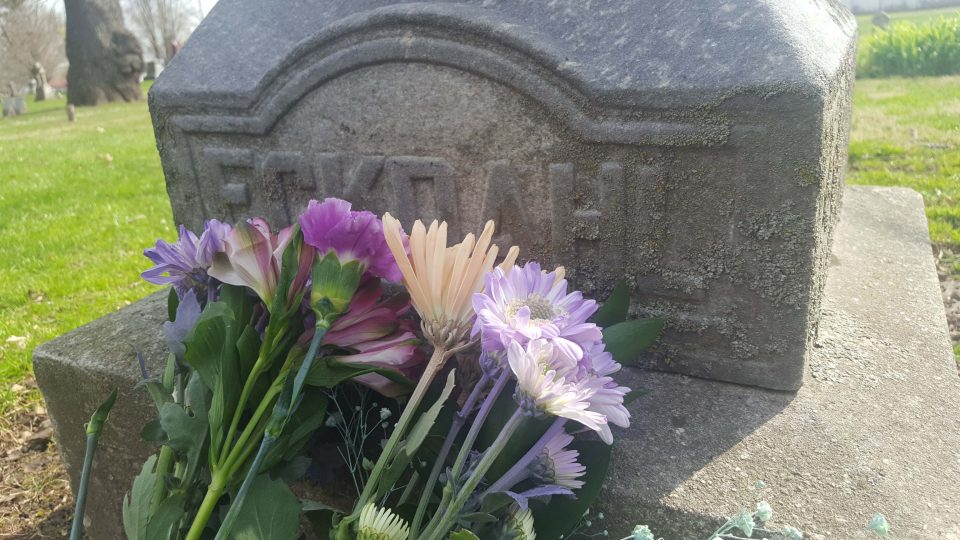I told my new friend I was taking a “day trip” on Good Friday 2017 because I didn’t want to tell her my real plans: I was driving two hours to visit a graveyard. Alone. I wouldn’t be free for brunch.
I called it my ancestral pilgrimage to try and romanticize it, but truthfully, I just went to rural Illinois to stare at some graves.
I’m lucky that my late great-grandma left us a very detailed account of our family history. As I was paging through her memoirs, I noticed that her grandparents were buried in Princeton, Ill., which is south and west of Chicago, my current home. Princeton is where my great-times-four-grandparents, John and Carolina Eckdahl settled when they moved from Sweden, where they farmed and made their home at the turn of the 20th century.
Both John and Carolina passed away in 1908. They lived into their 70s and died within 10 days of each other. It made the local papers.
Apart from that, I barely knew anything about this family. Their name doesn’t belong to any of my close relatives, not much is recorded about them, and I presently have no family ties to western Illinois, but I made it a priority to visit this place.
Unlike so many other promises that I make to myself, this time I actually went.
Good Friday didn’t initially play into this plan, save for the fact that we had the day off; it seemed like a good day to make the trip.
I drove from the city to the prairie and made my way to the cemetery. Thanks to modern technology, I knew almost exactly where I would find the Eckdahl family plot. The headstone was barely legible to due erosion and moss, but there was no mistaking it. These graves were among other old headstones. Some had crumbled and split in half. It was clear that this area of the graveyard didn’t have frequent visitors, and it’s no wonder why—they’ve been deceased for more than 100 years.
I brought a bouquet of flowers because it seemed like the right thing. Placing the fresh flowers on the century-old headstone was mingling the old life with the new. I wandered the grounds, offered some prayers of gratitude, took some photos to show my family and reflected on their legacy.
I thought about how brave they were to leave home. I thought about how surviving the journey, pioneer life, childbirth before modern medicine and the unforgiving elements of the prairie was a miracle in itself. I thought about how I never even came close to meeting these folks, but their existence and survival led to my existence and encourages me to carry out a hardworking legacy, too. While I never had the pleasure of knowing them, my great-grandma was born in their lifetime and lived into my lifetime—my junior high years. Thinking about how she bridged the generations is perplexing, beautiful and remarkable.
And then I remembered that it was Good Friday. The day that we stare at Jesus’ grave and lament his death, but always with the hope of resurrection. That day, I drove two hours to stare at a grave and lament the deaths of my ancestors, only to find myself being filled with resurrection hope and hope for future generations. This family started long before me and will continue long after.
So, too, the family of God—our one human family—started long before any of us and carries on, through God in Christ, who bridges all the generations. God willing, we will all be joined as saints though the resurrection promise.
Gracious God, we thank you for all the saints who have come before us who have led us to today. Help us to always remember that we are one human family. Stay with us from the grave of Good Friday to the triumph and resurrection of Easter, through Jesus Christ our Lord. Amen.






